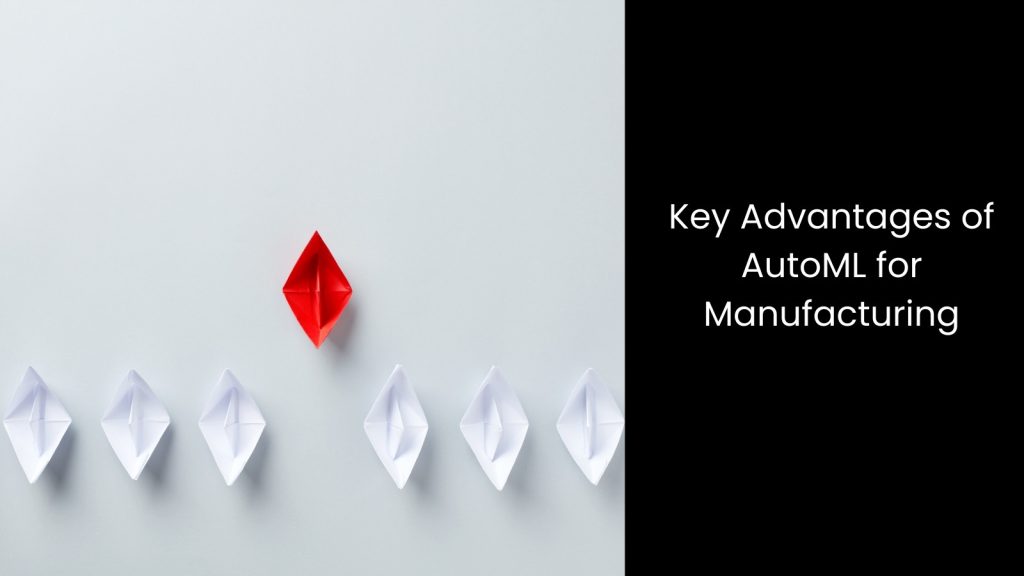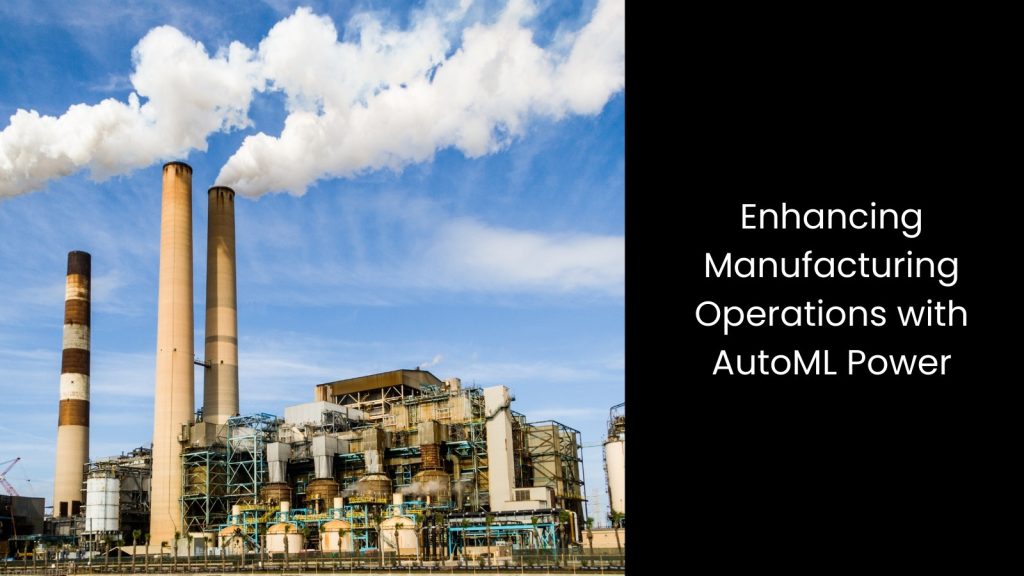In this blog post, we will explore the specific advantages of AutoML for the manufacturing sector in Singapore.
What is AutoML, or Automated Machine Learning?

How is this different? Let us explain.
- You already know that tasks such as data preprocessing, model selection, and hyperparameter tuning are highly time-consuming and have a complex workflow. This is where the AutoML comes in. Instead of requiring data scientists or engineers to handle these complex steps manually, AutoML automates these tasks. This makes machine learning more accessible to people without deep technical expertise and allows businesses to deploy machine learning solutions faster.
- The real question is how AutoML fulfils its duties. It uses algorithms to explore various data patterns and select the best models based on the problem at hand. In industries like manufacturing, AutoML can help analyse large amounts of data to optimise production processes, improve product quality, and predict maintenance needs. It also enhances decision-making by identifying patterns humans might overlook, allowing companies to make smarter, data-driven choices.
- Now with AutoML, manufacturing kingdoms like Singapore and its companies can focus on their core operations while still taking advantage of the power of artificial intelligence.
Key Advantages of AutoML for Manufacturing

Predictive Maintenance
It helps detect equipment failure patterns and predict maintenance needs, minimising unplanned downtimes and maximising machine lifespan. When it comes to manufacturing, machines tend to generate data through sensors, which capture information like temperature, pressure, vibrations, and other performance metrics. AutoML processes this data to identify trends or anomalies that indicate potential equipment failures.
When the latter does this automatically, it reduces the need for manual data analysis, which can be time-consuming and prone to errors. Predictive maintenance powered by AutoML is a way to enable manufacturers to schedule repairs or maintenance before a machine breaks down, preventing costly production halts. Instead of relying on regular maintenance schedules, manufacturers can perform maintenance only when necessary, based on actual machine conditions. This approach not only saves time and costs but also extends the life of machinery by addressing problems early.
Customising Ability
Customisation allows manufacturers to fine-tune their processes, respond quickly to market demands, and optimise resources for specific product lines. If they can customise workflows, manufacturers can adapt to variations in materials, customer specifications, or production volumes, which enhances both efficiency and product quality.
This is where the AutoML shines! It actually offers tools that allow manufacturers to create models tailored to specific needs. It is proven that these platforms help manufacturers create models tailored to specific needs, improving precision in production processes and enabling real-time adjustments based on changing data. This means that manufacturers no longer need to rely on generic machine learning models; they can design models that directly align with their operational goals. Whether it is optimising energy usage, improving supply chain efficiency, or reducing waste, AutoML provides the flexibility needed to address these specific challenges.
Significant Cost Reduction
If you have AutoML in place, it will give manufacturers the power to reduce costs by automating many of the complex steps involved in developing machine learning models. As it automates the model development process, the latter minimises the need for extensive human expertise, reducing labour costs and errors in model creation and data analysis.
Traditionally, you know companies would need to hire skilled data scientists and engineers to build machine-learning models. However, this is a process that is both time-consuming and expensive. With AutoML, much of this work is handled automatically, which reduces the reliance on costly experts and speeds up the process of creating and deploying models. This efficiency means that manufacturers can invest fewer resources into data science while still benefiting from advanced machine learning capabilities.
Improved Efficiency and Time Saving
AutoML literally automates the process of developing machine learning models. This would allow manufacturers to bypass the traditional, time-consuming steps like data preprocessing, feature selection, model tuning, etc.
By doing this, AutoML reduces the need for human intervention, which speeds up the model-building process and lets manufacturers focus more on their core operations. So, as you can see, this automation not only shortens the time it takes to analyse data but also improves the accuracy of the insights generated.
AutoML platforms have the ability to handle large datasets quickly, and this allows manufacturers to make real-time decisions and adjustments in production workflows. With the power of this, manufacturers can monitor performance, identify inefficiencies, and optimise processes faster than ever before. The real-time feedback and automated updates enable production lines to operate smoothly, minimising downtime and enhancing overall productivity.
Improving Product Quality
You can simply leverage the power of AutoML, as it uses advanced algorithms to analyse large datasets from production lines, detecting patterns that affect product quality.
Since it automatically processes data from sensors, machines, and other sources, it identifies inconsistencies or potential defects before they occur. This helps manufacturers take corrective action early, ensuring that the final products meet the highest standards.
AutoML’s ability to continuously monitor and learn from production data enables real-time adjustments to processes, so manufacturers can fine-tune their operations to improve precision. This gives manufacturers in Singapore the power to predict quality issues, optimise production techniques, and reduce human errors, which leads to more consistent and reliable outcomes.
With this in hand, manufacturers no longer need to rely on random quality checks; instead, they can use AutoML to ensure every stage of production meets quality benchmarks. This leads to a more efficient production process that consistently delivers high-quality products.
Cerexio MES for a Scalable Production Workflow

Cerexio MES solution is powered by AutoML capabilities, and it enables scalable production workflows in the manufacturing industry by automating data analysis and model building. This solution has the power to optimise your production processes by predicting equipment needs, improving product quality, allowing real-time adjustments, etc. AutoML power in Cerexio MES ensures seamless operations, allowing manufacturers to efficiently expand their production capacity while maintaining precision and quality.
Enhancing Manufacturing Operations with AutoML Power

As it is said, manufacturers using AutoML see a significant boost in productivity. This transformative technology delivers more than just efficiency; it literally encourages continuous improvement, helping teams tackle complex challenges effortlessly. With AutoML power in your systems, as a manufacturer, you can feel confident about delivering top-tier quality in every product you make.
